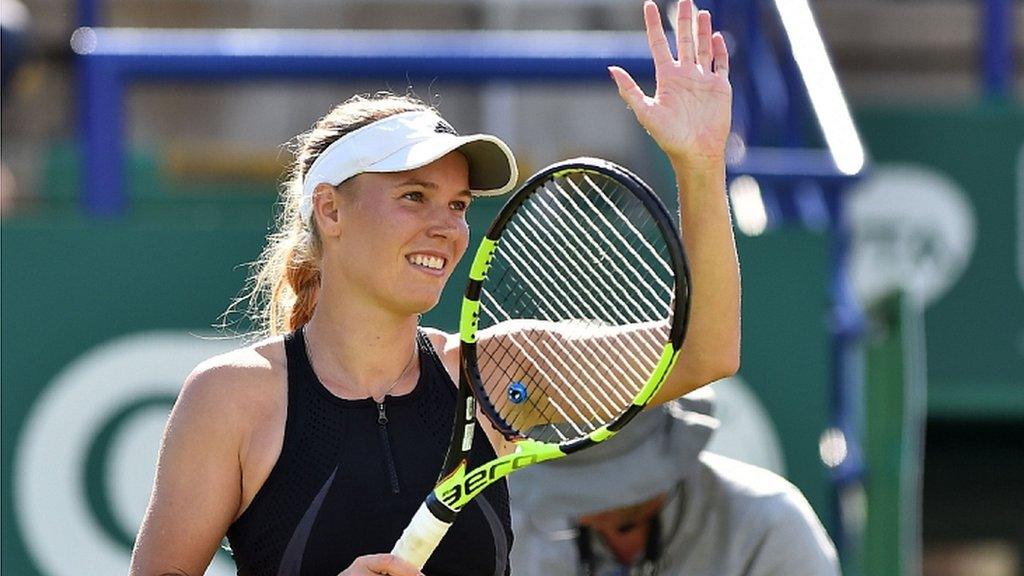Judy Murray: Lack of women in LTA leadership roles 'completely wrong'
- Published
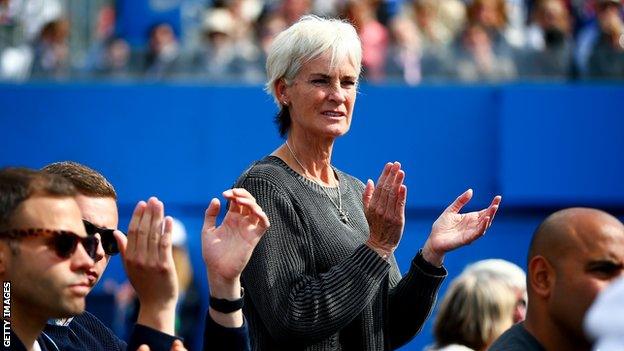
Judy Murray was Britain's Fed Cup captain from 2011 to 2016
Judy Murray says it is "completely wrong" there are so few women in senior leadership roles at the Lawn Tennis Association., external
Britain's former Fed Cup captain believes there must be more women at the top of the national governing body if female involvement in tennis in the UK is to grow.
"There probably haven't been anywhere near enough opportunities for women to develop: not just in coaching roles, but throughout the entire organisation," Murray told BBC Sport.
"If you look at our leadership team at the moment within the LTA [eight people on the executive team plus head coaches Leon Smith and Jeremy Bates] - there is only one woman, and that's the lady who runs the Human Resources department.
"So in that very important team - the decision-making team - there is no female tennis voice and to me that is completely wrong: something that really needs to be addressed. We need a much better balance."
With the notable exception of the professional tour, women are under-represented throughout the sport. Inspiring more girls to take up tennis - and then crucially to continue playing as they approach their teenage years - is central to the issue, and Murray believes female coaches are a big part of the answer.
Murray designed the Miss-Hits programme, which is aimed at girls aged between five and eight, and at the beginning of February launched a female coaching initiative called She Rallies. Both programmes are run in partnership with the LTA.
"I tried hard when I was Fed Cup captain to grow the women's side of the game," she said.
Judy Murray's Miss-Hit mission
"We don't have anywhere near enough women coaches and I do believe there is a correlation between the number of female coaches and our ability to retain girls in competitive sport.
"Women so much better understand how girls think and behave and what their needs are. Teenage girls, in my experience, are not going to open up about their fears - such as issues with their bodies - to male coaches."
The disparity between the number of male and female coaches is starkly illustrated in the professional game. Britain's top three women - Johanna Konta, Heather Watson and Naomi Broady - have taken on male coaches in recent months - principally because there is a much bigger pool to choose from.
"My experience of working with women coaches is that there aren't egos," Murray continued.
"They are much more willing to work together, and network and share. And I think if we can use that as a starting point, then we get more women doing things together and we can really start to make some inroads."

World number 11 Johanna Konta hired Wim Fissette after her split with long-time coach Esteban Carril
The LTA says it has insisted on there being at least one woman on the shortlist for the last three executive vacancies, and is proud of the fact that the nine women who have returned from maternity leave in the past 18 months have all been offered flexible working. A specific strategy aimed at women and girls is set to be launched later in the year.
And as for increasing the number of women in the senior leadership team, chief executive Michael Downey says it is a priority for the LTA, but that it will not happen overnight.
"Given that our sport is pretty gender-balanced, we want to have more gender balance in leadership roles," Downey told the BBC.
"Change like that can take some time to get there, but we've got to keep working on it: it's the right thing to do.
"We spend a lot of time on the key hires, and hopefully more often or not there will be qualified women who give us an opportunity to achieve some of those metrics moving forward."
- Published6 February 2017
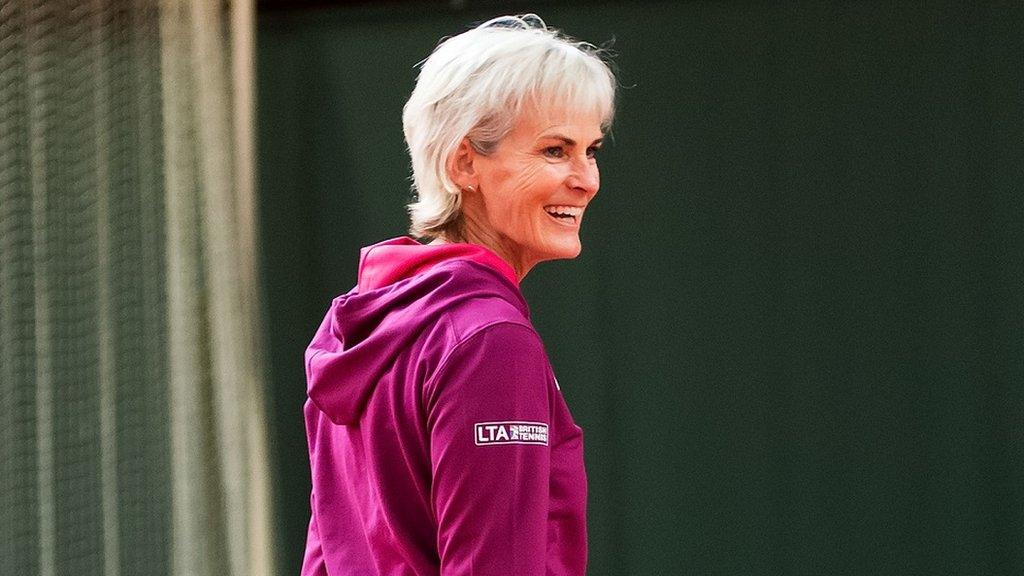
- Published9 February 2017
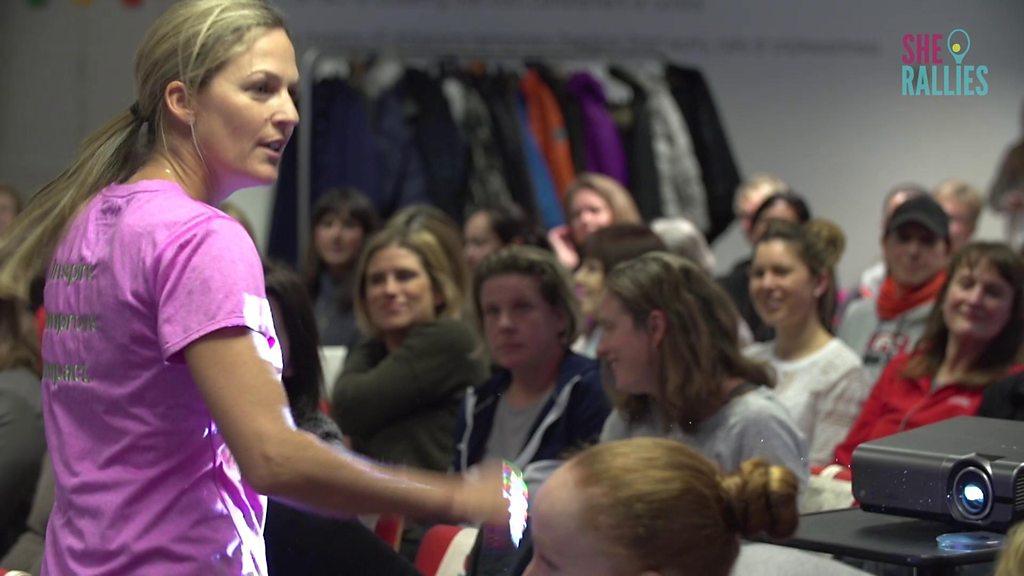
- Published2 July 2014
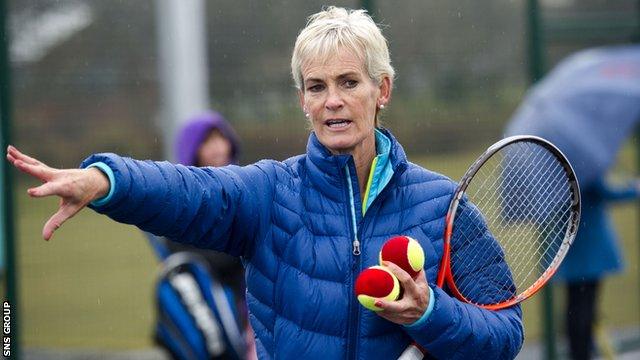
- Published24 June 2018
